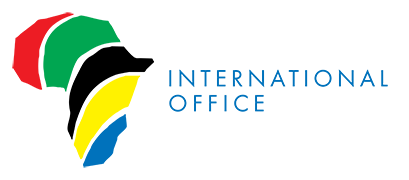Emergency contacts
UCT offers emergency support for students if needed. We recommend you save the following numbers:
Campus protection services (all hours): (+27) 21 650 2222
General administrative queries (office hours only): (+27) 21 650 2822
Your safety
All large cities can be unsafe, and Cape Town is no exception. Please note our safety guidelines below.
- When walking on campus, we recommend students use the preferred pedestrian routes, which have safety bollards along the path. Students are also encouraged to follow the blue route when walking between upper and lower campus. The nine emergency bollards, which are evenly spaced along the routes, are covered by CCTV and have an intercom linked directly to Campus Protection Service (CPS). Each bollard has a very distinctive flashing blue light on the top for easy identification. See the blue route on the campus maps, for Upper and Middle Campus.
- If you are walking anywhere on campus after dark and feel unsafe, you can contact CPS to escort you to your campus or student housing destination.
- Don’t carry large sums of cash, cameras or other valuables in plain sight. Never leave your belongings unattended.
- Keep your important documents in a safe place and carry around photocopies of your passport, visa or other identification documents.
- Always be aware of your surroundings and the people around you: avoid using earphones when in public.
- Avoid using public transport after dark. We recommend that you take a Taxify or Uber to go from place to place.
- Don’t buy illegal drugs in South Africa, even if you are offered them on the street. Students have been the victims of crime in this kind of situation.
- Never drink and drive, or go in a car driven by someone who has been drinking.
- When you are out in a public space, be vigilant and watch your drinks at all times as students have been victims of having their drinks spiked with drugs.
- Do not leave bags or items visible in your car when you park it on the street.
- Do not hike, climb or swim in the ocean alone; always prepare well to ensure you have the necessary equipment, you know your route, and have the accurate information about the place you intend to explore – especially if you go without a guide.Ensure you take a fully charged cell phone with you and let someone know exactly where you are going and when you expect to be back.
- The Western Cape has an abundance of wildlife, and if you explore Cape Town’s surrounding areas you are very likely to come face-to-face to with wild animals, particularly baboons. Remember that all wild animals are dangerous. Baboons may be used to humans and unafraid of us, but that does not mean they are tame. Do not feed them, do not approach them and if you come across a troop of baboons on the road, keep your car windows closed. Baboons associate humans with food and might try and get into your car to raid it.
- If you experience any incidents of crime while you are in Cape Town you need to report the incident to the nearest South African Police Service Station (SAPS), as soon as possible, as well as to IAPO.
Your health
- High-quality tap (faucet) water is available across the city and is both palatable and safe to drink straight from the tap.
- The sun’s rays are extremely harmful and should not be underestimated. Even if you don’t feel hot, or it is overcast, always wear sunscreen (and preferably a hat) when you are outdoors.
- Cape Town is a malaria-free city; however, if you travel north up to Mozambique or even to the Kruger National Park and surrounding areas, anti-malaria pills are recommended. Check with your GP or a travel clinic for more information.
- If you are travelling from a yellow-fever-endemic area, you will need to ensure that you are inoculated before arriving in South Africa. Please keep your proof of inoculation status when you arrive in the country.
- If you intend on travelling to a yellow-fever-endemic area once you are in South Africa, you will need to get inoculated. You can do so at the Travel Clinic
- If you suffer from any allergies or medical condition, you should wear a medical ID bracelet, which is called a MedicAlert bracelet in South Africa, obtainable from MedicAlert.
- There are several private and public hospitals within a 2-5km distance of the university. Such as: UCT Private Hospital; Claremont Medical Centre; Kingsbury Hospital; Rondebosch Medical Centre; and Groote Schuur Hospital.
Student wellness services
UCT’s Student Wellness Service helps all students to maintain their emotional and physical well-being, by providing access to medical doctors, psychologists and a psychiatric nurse.
Note. Download the UCT App in Google Play or Apple Store.
The App will enable you to make appointments to see the doctor, psychologist – and offer tons of other services to support your studies at UCT!
